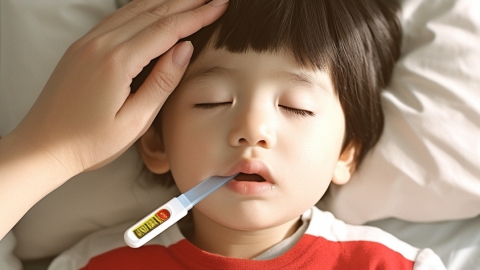Can a child drink water before undergoing an examination for a nosebleed?
Generally speaking, whether a child can drink water before undergoing an examination after experiencing a nosebleed should be determined based on the specific cause, severity of the nosebleed, and the type of examination required. If there are any concerns or discomfort, it is advisable to seek timely medical attention for professional evaluation by a doctor. Below is a detailed analysis:

If the child's nosebleed is caused by factors such as dry nasal mucosa or minor trauma and involves minimal bleeding that has mostly stopped, the child can usually drink water before undergoing routine tests such as blood tests or nasal endoscopy. Drinking water will not worsen the bleeding or interfere with test results. Appropriate hydration may help relieve dryness of the mucous membranes and aid in recovery.
If the nosebleed is due to coagulation disorders, nasal vascular malformations, or other such causes, with significant bleeding that has not been effectively controlled, special tests such as coagulation function tests or angiography are required, and drinking water before the examination is not recommended. Consuming large amounts of water might affect blood concentration, interfere with the accuracy of coagulation-related indicators, and swallowing could stimulate the nasal cavity, potentially worsening the bleeding before it has stopped.
When a child experiences a nosebleed and requires medical examination, the doctor should be informed in advance about the bleeding status and its duration. Before the examination, follow the instructions provided by medical staff regarding whether fasting or avoiding water intake is necessary. While waiting for the examination, keep the child calm and avoid vigorous activity; applying a cold compress to the bridge of the nose may help stop the bleeding. If bleeding persists or recurs frequently after the examination, prompt follow-up medical care is needed for further diagnosis and treatment.







